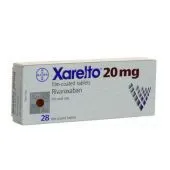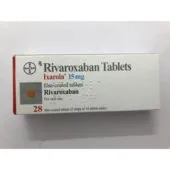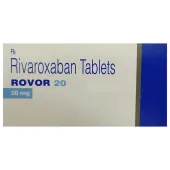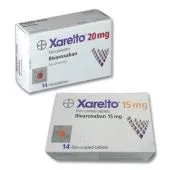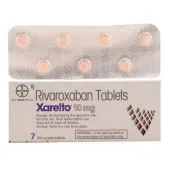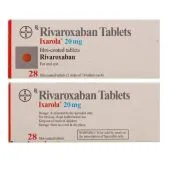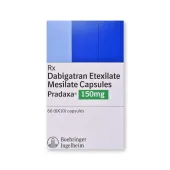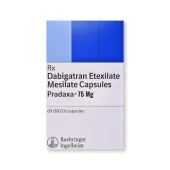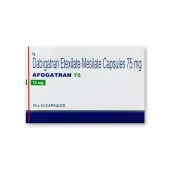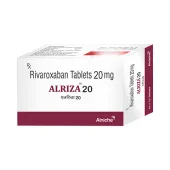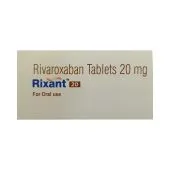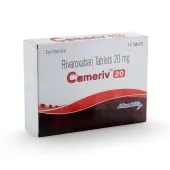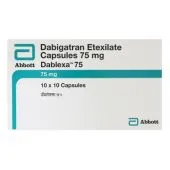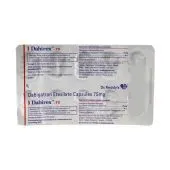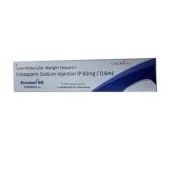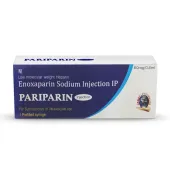Anti Coagulants

Anti-Coagulants
Deep vein thrombosis (DVT) occurs when a blood clot (thrombus) forms in one or more of the deep veins in your body, usually in your legs. Deep vein thrombosis can cause leg pain or swelling, but also can occur with no symptoms. It can be very serious because blood clots in your veins can break loose, travel through your bloodstream and lodge in your lungs, blocking blood flow (pulmonary embolism).
Causes Of DVT
Blood clots can form if you don't move around a lot. You may also get a blood clot if you:
- Have had recent surgery.
- Are 65 or older.
- Take hormones, especially for birth control. (Ask your doctor about this).
-
Have had cancer or are being treated for it.
-
Have broken a bone (hip, pelvis, or leg).
-
Have a bad bump or bruise.
-
Are obese.
-
Are confined to bed or a chair much of the time.
-
Have had a stroke or are paralyzed.
-
Have a special port the doctor put in your body to give you medicine.
-
Have varicose (VAR-e-kos) or bad veins.
-
Have heart trouble.
-
Have had a blood clot before.
-
Have a family member who has had a blood clot.
-
Have taken a long trip (more than an hour) in a car, airplane, bus, or train.
Signs Of DVT
Symptoms of blood clots depend on their location in the body. Some blood clots produce no symptoms until they rupture or become dislodged and travel through the circulatory system to other sites. Symptoms of blood clots in specific body locations are as follows:
-
Symptoms of blood clots in legs (deep vein thrombosis (DVT) are pain, redness, and swelling.
-
Symptoms of an arterial blood clot in a limb (leg or arm) include pain, pale color, and coolness to the touch. and the leg is cool and pale.
-
Symptoms of blood clots in the lung (pulmonary embolism ) include chest pain, shortness of breath, and rapid pulse and breathing.
-
Symptoms of a stroke (blood clot in an artery of the brain) include loss of speech, vision, and weakness on one side of the body.
-
Symptoms of a heart attack (blood clot in a coronary artery) are chest pain, shortness of breath, nausea, indigestion, and sweating. Women, people with diabetes, and the elderly may experience other non-specific symptoms.
-
Symptoms of mesenteric ischemia (blood clot to an artery that supplies the intestine) include abdominal pain, nausea, blood in stool.
Diagnosis
Your doctor will diagnose deep vein thrombosis (DVT) based on your medical history, a physical exam, and the results from tests. He or she will identify your risk factors and rule out other causes of your symptoms.
Medical History: To learn about your medical history, your doctor may ask about:
-
Your overall health
-
Any prescription medicines you’re taking
-
Any recent surgeries or injuries you’ve had
-
Whether you’ve been treated for cancer
Physical Exam: During the physical exam, your doctor will check your legs for signs of DVT. He or she also will check your blood pressure and your heart and lungs.
Diagnostic Tests: Your doctor may recommend tests to find out whether you have DVT. The most common tests used to diagnose DVT are:
-
Ultrasound: This is the most common test for diagnosing deep vein blood clots. Ultrasound uses sound waves to create pictures of blood flowing through the arteries and veins in the affected leg.
-
A D-dimer test: This test measures a substance in the blood that’s released when a blood clot dissolves. If the test shows high levels of the substance, you may have a deep vein blood clot. If your test is normal and you have few risk factors, DVT isn’t likely.
-
Venography: This test is used if ultrasound doesn’t provide a clear diagnosis. Dye is injected into a vein, and then an x ray is taken of the leg. The dye makes the vein visible on the x ray. The x ray will show whether blood flow is slow in the vein. This may indicate a blood clot.
-
Other less common tests used to diagnose DVT include magnetic resonance imaging (MRI) and computed tomography (CT) scanning. These tests provide pictures of your organs and tissues and are commonly used to diagnose pulmonary embolisms (PE).
Prevention Of DVT
You can help prevent blood clots by choosing the following preventive measures-
-
Wear loose-fitting clothes, socks, or stockings.
-
Raise your legs 6 inches above your heart from time to time.
-
Wear special stockings (called compression stockings) if your doctor prescribes them.
-
Do exercises your doctor gives you.
-
Change your position often, especially during a long trip.
-
Do not stand or sit for more than 1 hour at a time.
-
Eat less salt.
-
Try not to bump or hurt your legs and try not to cross them.
-
Do not use pillows under your knees.
-
Raise the bottom of your bed 4 to 6 inches with blocks or books.
-
Take all the medicines the doctor prescribes you.
Adverse Effects On Body
The severe effects of blood clotting can result in the risk of life also. The patient with blood clot may face:
-
Acute heart attack
-
Angina pain
-
Mini stroke or transient ischemic attack
Common Medications
Anticoagulants are the most common medicines for treating DVT. They’re also known as blood thinners. These medicines decrease your blood’s ability to clot. They also stop existing blood clots from getting bigger. However, blood thinners can’t break up blood clots that have already formed. (The body dissolves most blood clots with time.)Blood thinners can be taken as either a pill, an injection under the skin, or through a needle or tube inserted into a vein. You are advised not to order anti-coagulants online from any random store as it can harm your health in the long term. Rather, get it from any reputed online pharmacy as ours. Following is a list of medications for DVT.
-
Warfarin
-
Aspirin
-
Clopidogrel
-
Dipyridamole
-
Prasugrel
-
Ticagrelor
-
Ticlopidine
-
Apixaban
-
Dabigatran
-
Edoxaban
-
Heparin
-
Rivaroxaban
What Kind Of Doctors Treat Blood Clots
A variety of different specialists may be involved in the care of a patient with a blood clot, from diagnosis to treatment and prevention, depending upon the exact type and location of the clot. These may include internists, family medicine specialists, emergency physicians, interventional radiologists, surgeons, cardiologists, cardiothoracic surgeons, neurologists, and critical care specialists.
